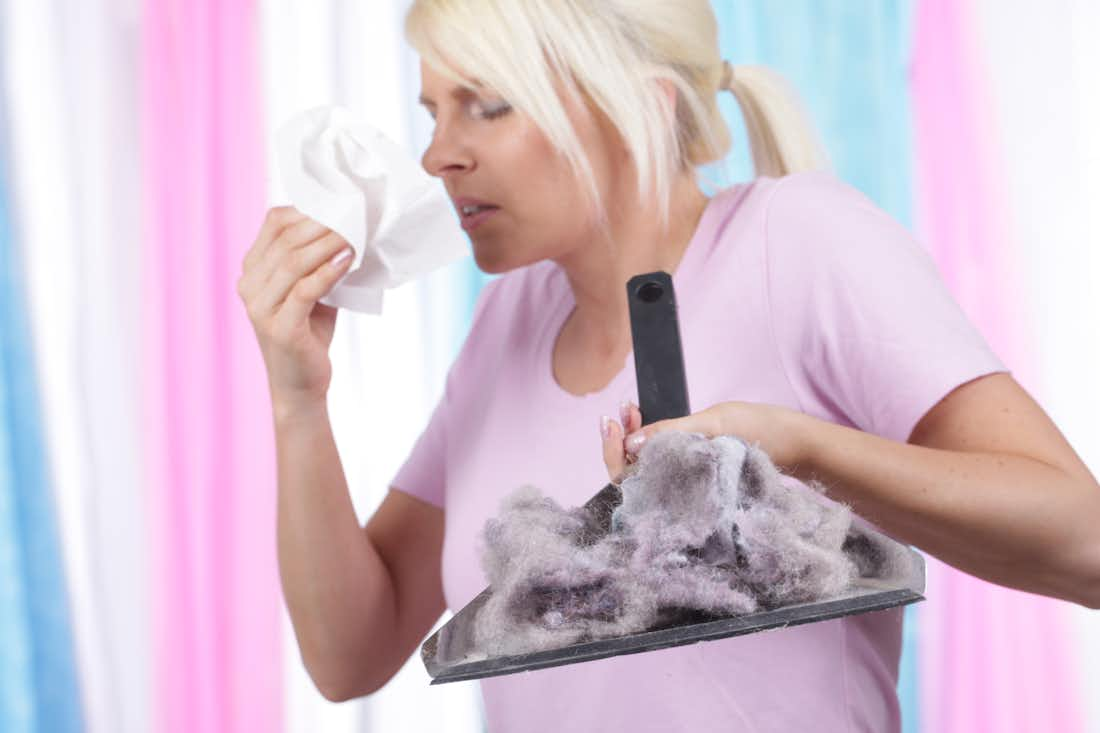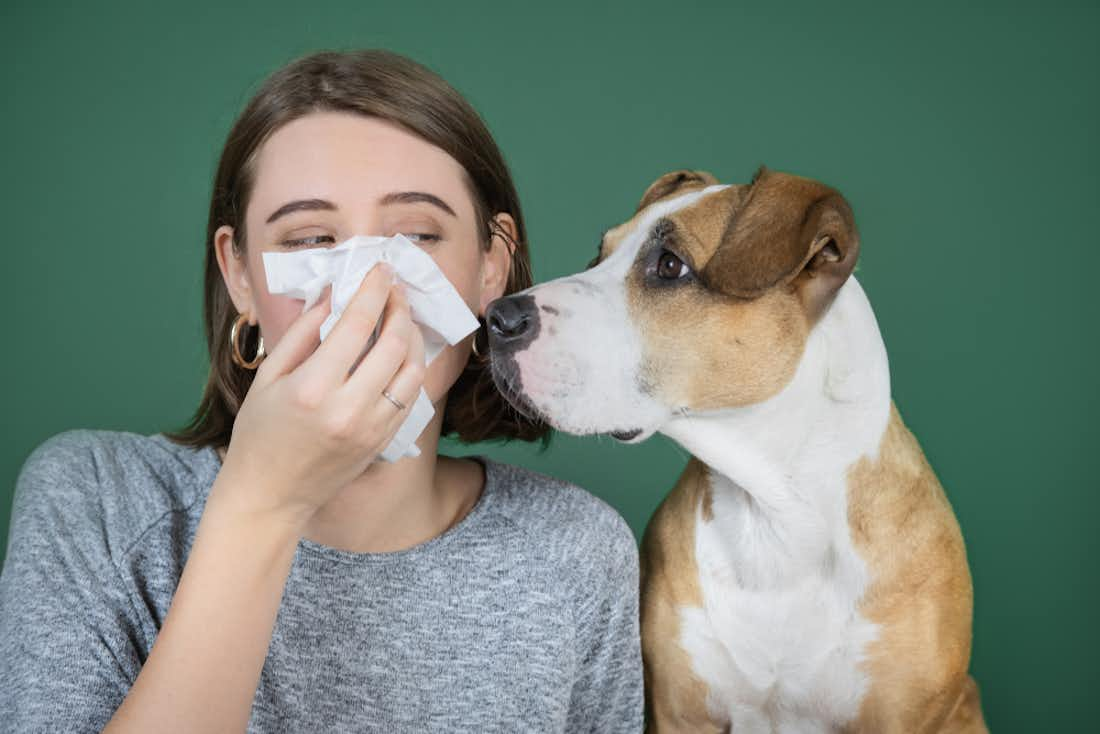Oct 22, 2021
Ultimate Guide to Antihistamines
5 minute read
Antihistamines are known for their allergy-fighting power. In this post, we’ll cover all the info you need about different forms of medication – what they are, how they work, the different types, and more.
What Are Antihistamines?
If you have allergies or hay fever (allergic rhinitis), antihistamines are some of the main medications that you might turn to for daily relief. These medicines are designed to reduce your immune system's production of histamines, chemicals that play a key role in causing your allergy symptoms.
How Antihistamines Work
When exposed to an allergen, your immune system starts producing those histamines, leading to an inflammatory response. This response can cause your nasal passages to clog up, giving you nasal congestion or a runny nose. Meanwhile, you might start dealing with sneezing, watery eyes, hives, a runny nose, and lots of itching.
Taking an antihistamine can make your immune system's allergic response less severe. That means you'll be able to have some relief from all of those uncomfortable symptoms.
Prescription Antihistamines
If you're suffering from severe seasonal allergies, your doctor may recommend that you start taking a prescription antihistamine. These medications are stronger than their over-the-counter counterparts, and they're only available with your doctor's approval.
Common prescription antihistamines include Azelastine eye drops (Optivar), Azelastine nasal sprays (Astelin, Astepro), and Hydroxyzine (Atarax, Vistaril).
Over-The-Counter Antihistamines
You can find over-the-counter (OTC) allergy medication at your local pharmacy or grocery store, and you don't need a prescription to pick it up. OTC meds are typically not as potent as prescription antihistamines, but they can still help you get relief daily.
Some of the most common OTC antihistamines are Cetirizine (Zyrtec), Diphenhydramine (Benadryl), Fexofenadine (Allegra), and Loratadine (Alavert, Claritin).
First-Generation, Second-Generation, and Third-Generation Antihistamines
There are three classes of OTC antihistamines, and it's worth knowing about both as you embark on your allergy prevention journey.
First-Generation Antihistamines
First-generation antihistamines were developed earlier, and they're typically more affordable. However, many first-generation meds have a side effect – drowsiness. In other words, this generation is considering sedating antihistamines. These include Benadryl, Chlorpheniramine, Brompheniramine, and Doxylamine (NyQuil).
In some cases, first-generation antihistamines can also cause side effects like dizziness and nausea. You're not supposed to take these medications during the day in circumstances when you might be affected by drowsiness.
Second-Generation Antihistamines
These over-the-counter allergy medications were developed more recently, and they're typically designed to be non-drowsy. That means you can take one in the morning and not have to worry about falling asleep on the job!
The second-generation family of antihistamines includes meds like Zyrtec, Claritin, and Allegra.
Third-Generation Antihistamines
Like second-generation antihistamines, third-generation antihistamines are generally safer and more potent than first-generation antihistamines. They do not have sedative properties.
Some examples of third-generation antihistamines include desloratadine (Clarinex), loratadine (Claritin), and fexofenadine (Allegra).
No matter what type of antihistamine you decide to take, track your usage and use caution when taking them, as some medication could have adverse effects. If you are already on medication, drug interactions may occur with antihistamines. If you have high blood pressure, are in the middle of a pregnancy, have thyroid, kidney, or liver problems, it may be a good idea to reach out to your allergist or primary care doctor if you have any medication concerns.
Who Can Benefit from Antihistamines?
Antihistamines can provide long-lasting relief for you if you suffer from seasonal allergies. These allergies tend to flare up at certain times of the year and are triggered by specific allergens. Common seasonal allergy triggers include tree pollen, grass pollen and ragweed pollen.
What About Immunotherapy?
If allergies are making your life miserable, an antihistamine might be exactly what you need. However, your allergist might recommend taking a more long-term approach to treatment.
Immunotherapy is a treatment method for allergies that helps your immune system build tolerance to specific allergens. Immunotherapy reduces your immune system’s sensitivity over time by using tiny amounts of the allergens that cause your symptoms. That means that you eventually might not have to take antihistamines at all, thanks to immunotherapy!
There are two types of immunotherapy – subcutaneous and sublingual. Subcutaneous immunotherapy uses allergy shots to get your body used to the causes of your symptoms, whereas sublingual immunotherapy uses capsules or other oral medications to reach the same goal.
Will Antihistamines Treat a Severe Allergic Reaction?
If you have life-threatening allergies to food, medicine, or other substances, your doctor will most likely recommend that you rely on more than just antihistamines for safety. In most cases, an auto-injectable epinephrine shot is recommended to people who suffer from allergies that may cause an anaphylactic reaction.
While antihistamines may relieve more severe allergic reactions, they're not the best choice for a last resort. Stick with the recommended epinephrine treatments for severe allergies and follow your doctor's advice to stay safe and healthy!
Do Antihistamines Have Side Effects?
Whenever you start taking a new medicine, it’s always a good idea to be in the know about potential side effects. That way, you can be prepared in case you start dealing with unexpected issues due to your new meds. Below are some of the most common side effects that you may encounter while taking antihistamines.
Side Effects of First-Generation Antihistamines
For first-generation antihistamines, the most common side effect that you may encounter is drowsiness. These medications are known to make you sleepy, and they can also sometimes cause dizziness or blurred vision.
In addition, first-generation antihistamines have some less common side effects that are definitely worth knowing about. These medications can sometimes cause low blood pressure, a higher heart rate, and headaches, as well as dry mouth or dry eyes. If any of these side effects start having a negative impact on your quality of life, it’s a good idea to talk to your doctor or allergist about finding a medication that works better for you.
Side Effects of Second-Generation Antihistamines
Second-generation antihistamines are typically non-drowsy, but they can still cause other side effects in some cases. When you first start taking a new antihistamine, you may notice that your throat feels a little sore. In addition, second-generation antihistamines may also make your mouth feel dry.
Some more uncommon side effects of second-generation antihistamines include an upset stomach, vomiting, coughing, and fatigue. If you experience these side effects, it’s definitely a good call to talk to your doctor as soon as possible.
Are Antihistamines Right For You?
If you’re looking for an allergy treatment that works, we can help.
At Cleared, we offer a wide array of prescription and OTC antihistamines and other allergy medications, and one of our allergists can help you pick the right one for you. You can book a consultation with one of the allergists on our team today and get started on your journey to an allergy-free life!
Reviewed by Dr. Payel Gupta
Sources:
Antihistamines: Definition, Types & Side Effects | Cleveland Clinic
OTC Antihistamines - Side Effects | familydoctor.org
Sleep aids: Could antihistamines help me sleep? | Mayo Clinic
Therapeutic advantages of third-generation antihistamines | NCBI



